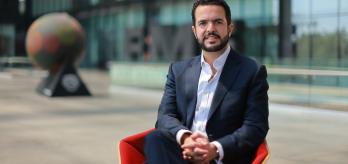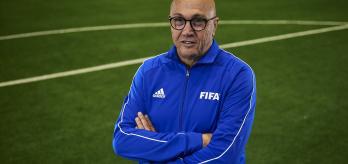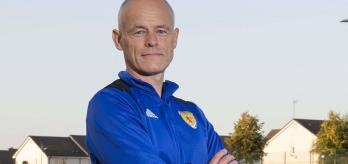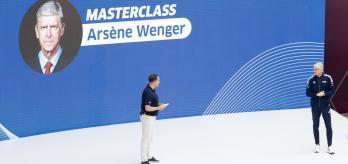Learning
-
How to develop a variety of pathways to support players to the elite level
-
Developing effective relationships with academic institutions for the development of players and coaches
-
Organising competitions with teams from different levels: professional, amateur, education
Japan's two main routes
Talented young players in Japan can join a professional academy or stay in education in order to achieve their dream of making it as a professional, says Takeshi Ono, JFA Assistant Technical Director.
“In Japan we have a unique elite player pathway,” says Ono, who is responsible for youth development and coach education at the Japanese FA. “In most countries I know, the elite youth player is playing for an academy of the professional clubs. But we have many good players in small town clubs, school football and of course in university football.
“In fact, our senior national team is made up of players who come from school football, professional academies and the town clubs. It means that if you are a young player in Japan, you can go to a professional academy or you can go to the school football and in both you can meet good quality coaches with a passion.”
How Japanese football started in schools
Ono, who is also a FIFA Technical Leadership expert, explains that the strength of school and university football is a product of Japanese football history.
“In Japan, football started from schools,” he explains. “After working as a teacher, the school teachers voluntarily coach the players with great passion. The teachers have always been keen on learning, they're qualified and have taken many coaching lessons in the past.”
It was 1995 when professional football was launched in Japan, with academies developing after this. It means that football in the education system has strong foundations that remain today.
“We still have good facilities in schools and good teachers who are not only teachers but also qualified and good quality coaches. Some schoolteachers have professional licences because they are keen on learning and keen on coaching. That's why there is great competition between the school teams and professional clubs. Because the schools have pride and don't want to lose against a professional club.”
Educational establishments competing against professional academies
Japan’s unique player pathway sees schools and universities compete in the same competitions as professional academies, explains Ono.
“School football and club academies initially had no official competition, but through the efforts of many football fellows we were able to set up a league where they could play in the same format. School football and club academies are now in the same league format,” he explains. “For example, we have an U18 Premier League and it consists of 24 teams. Professional academies make up half of the teams involved, but there are still high school teams in the top league and sometimes small town clubs are promoted to that league.”
Summary
-
Develop a variety of pathways to support players to the elite level
-
Positive relationships with academic institutions can help support the development of both players and coaches
-
Consider the benefits of organising competitions with teams from different levels: professional, amateur, education
Reflection
-
How varied are the elite player pathways in your country?
-
How can you work more effectively with different stakeholders in order to give talent the chance to develop?























